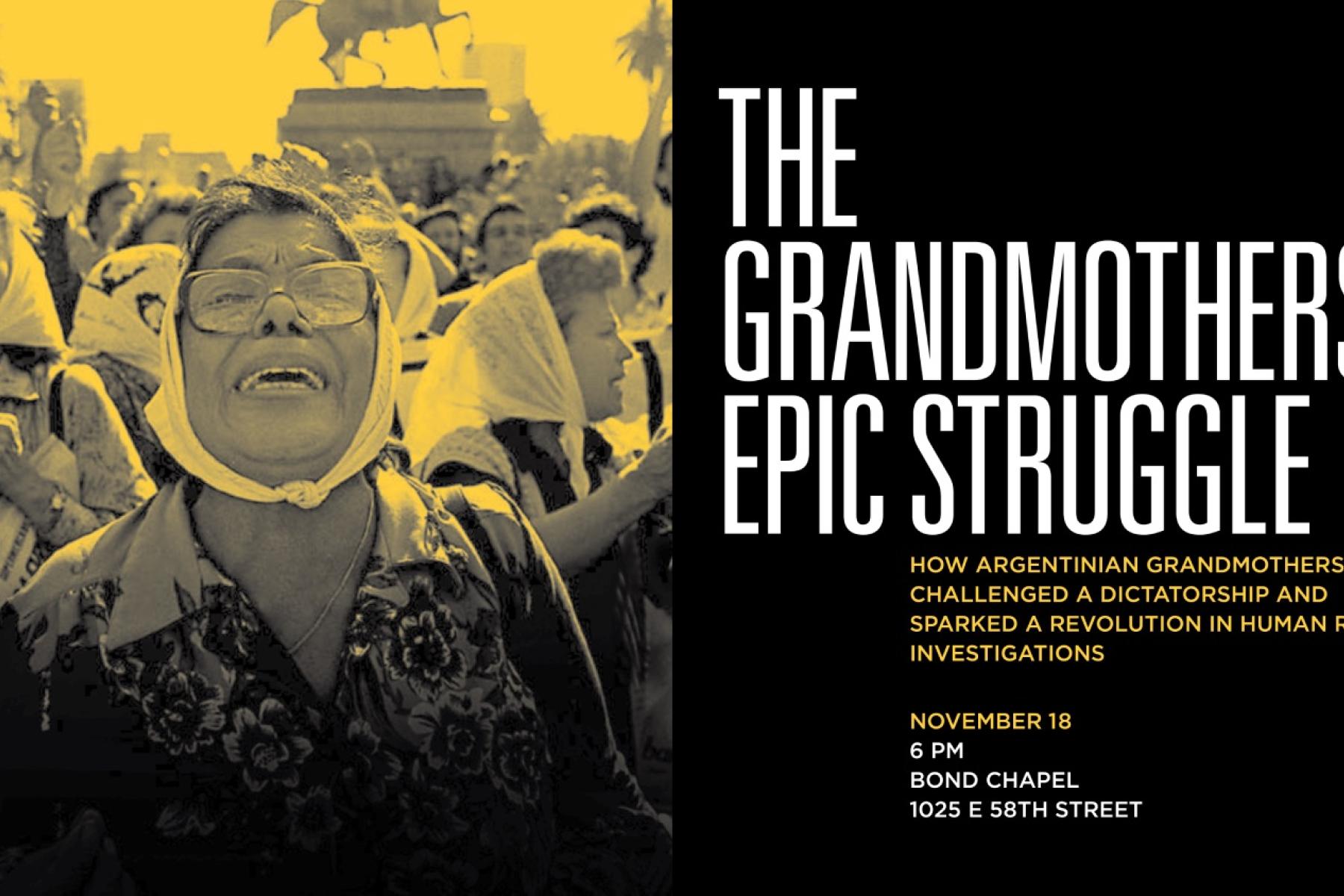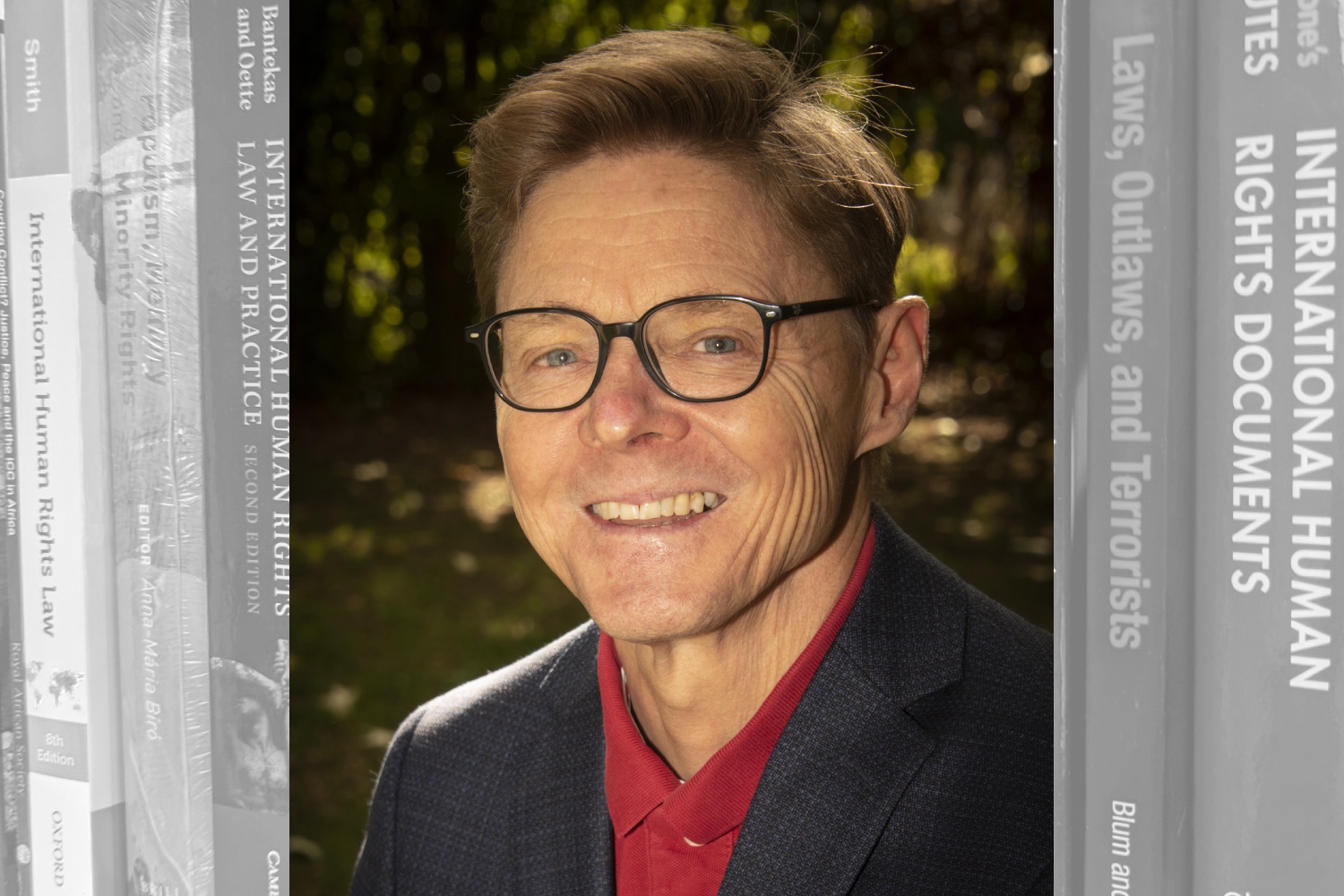In Brief
- Poblete was one of hundreds of children kidnapped by Argentina’s military regime.
- She learned the truth of her identity thanks to innovative forensic techniques co-developed by Argentine activists and forensic experts.
- She will be in conversation with United Nations Special Rapporteur Morris Tidball-Binz, who began his career working on this cause. (Register to attend.)
- Many of the kidnapped children remain unidentified, and Poblete is involved in the ongoing struggle for accountability for the regime’s human rights violations.
In 1978, an Argentine baby named Claudia Poblete was taken from her parents by her country’s military regime. She was raised by another family, and decades would pass until she learned the truth of her identity. By then, Poblete’s parents had been tortured and died in detention, but she was able to meet her grandmother and extended family.
On November 18, Poblete – now an active participant in the quest to document Argentina’s history of human rights violations and hold their perpetrators accountable – will take part in a panel talk hosted by the Pozen Center.
In addition to relating her personal story, Poblete will emphasize the present-day coordinates of the struggle for human rights accountability in Argentina, where the current right-wing government is attempting to minimize the killings and other crimes of the military regime that ruled between 1976 and 1983.
She will be joined by two University of Chicago human rights practitioners.
United Nations Special Rapporteur Morris Tidball-Binz, a pioneer in the application of forensic science to human rights investigations, will discuss the development of genetic techniques that were developed in the effort to find Poblete and others kidnapped as children. As the co-founder and first director of the Argentine Forensic Anthropology Team, Tidball-Binz was a central player in this effort. He is currently a visiting researcher at UChicago, cosponsored by the Pozen Family Center for Human Rights and the Law School.
Anjli Parrin, head of the Law School’s Global Human Rights Clinic, collaborates frequently with Tidball-Binz, and often trains doctors and medical investigators on how to align their expertise with the needs of human rights investigations.
harnessing science for human rights
Poblete’s story is, in many ways, a story of how activists’ bold visions and specialized scientific knowledge can complement each other and spur innovation in the work of advancing human rights.
Poblete’s grandmother was a member of an activist group called the Grandmothers of Plaza De Mayo, which focused – and continues to focus – on finding children whose parents had been kidnapped by the regime, which placed them with other families. Members of this group had the foresight to see that new developments in genetic science could play a crucial role in this search.
The Grandmothers’ vision inspired the creation of the Argentine Forensic Anthropology Team, which went on to create the first-ever genetic database used to locate victims of enforced disappearances. Today, the Grandmother’s efforts are widely recognized as having played a key role in documenting the nature and extent of the dictatorship’s crimes. As a result, over 100 victims of kidnapping – like Poblete – have been reunited with their families.
recognizing a full legacy
Tidball-Binz served as the director of the Argentine Forensic Anthropology Team for its first six years, until 1990. Looking back today, he feels the Grandmothers have still not received full credit for their accomplishments. While the broad story of their activism is well known around the world – thanks in large part to the human drama of forced adoption cases – Tidball-Binz argues that the Grandmothers deserve recognition not just for their bravery and perseverance for being the first to identify the novel potential of genetic techniques.
“Today, this feels obvious,” Tidball-Binz says. “We’ve all seen TV shows where people are gathering genetic samples from crime scenes, stuff like that. But in the early 1980s, no one thought like that. It was these women who had the vision, and who pushed to make it actually happen. And this is still not fully recognized, even in the human rights world.”
Poblete sits on the Grandmother’s board and continues to encourage Argentines with doubts about their families and upbringings to contact the organization. She will be traveling to Chicago straight from Washington, DC, where she will testify before the Inter-American Commission on Human Rights about the current Argentine government’s hostility to honesty about the past, its slander of groups like the Grandmothers, and its apparent interest in granting amnesty to perpetrators of the dictatorship’s crimes.
The day after the panel (November 19), a documentary about the Argentine Forensic Anthropology Team will be shown at UChicago Doc Films. El Equipo explores the creation of the team; the contributions of Clyde Snow, a forensic anthropologist who also worked frequently with the Cook County Medical Examiner’s Office; and the expansion of the team’s efforts into over 30 countries.
Thanks to a collaborative new arrangement with the UChicago Global Human Rights Clinic, both law students and undergraduates are contributing to Tidball-Binz’s ongoing projects, producing research that will be included in UN reports.
This panel talk will take place November 18 at 6pm in UChicago's Bond Chapel (1025 E 58th St). Morris Tidball-Binz and Claudia Poblete are both available for interviews. Contact Peter Baker (bakerp@uchicago.edu) with questions.


